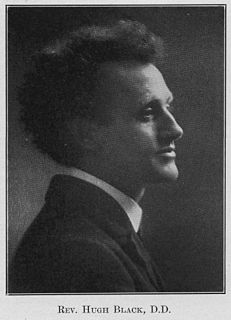A Quote by George Whitefield
Thus was the King and the Lord of glory judged by man's judgment, when manifest in flesh: far be it from any of his ministers to expect better treatment.
Related Quotes
The Pope should not flatter himself about his power nor should he rashly glory in his honor and high estate, because the less he is judged by man, the more he is judged by God. Still the less can the Roman Pontiff glory because he can be judged by men, or rather, can be shown to be already judged, if for example he should wither away into heresy; because he who does not believe is already judged, In such a case it should be said of him: 'If salt should lose its savor, it is good for nothing but to be cast out and trampled under foot by men.'
We ... tend to evaluate others on the basis of physical, outward appearance: their "good looks," their social status, their family pedigrees, their degrees, or their economic situations. The Lord, however, has a different standard by which he measures a person. When it came time to choose a king to replace King Saul, the Lord gave this criteria to his prophet Samuel: "Look not on his countenance, or on the height of his stature; ... for the Lord seeth not as man seeth; for man looketh on the outward appearance, but the Lord looketh on the heart."
By Liberty I understand the Power which every Man has over his own Actions, and his Right to enjoy the Fruits of his Labour, Art, and Industry, as far as by it he hurts not the Society, or any Members of it, by taking from any Member, or by hindering him from enjoying what he himself enjoys. The Fruits of a Man's honest Industry are the just Rewards of it, ascertained to him by natural and eternal Equity, as is his Title to use them in the Manner which he thinks fit: And thus, with the above Limitations, every Man is sole Lord and Arbitrer of his own private Actions and Property.
If an earthly king was to issue out a royal proclamation, on performing or not performing the conditions therein contained, the life or death of his subjects entirely depended, how solicitous would they be to hear what those conditions were? And shall not we pay the same respect to the King of kings and Lord of lords and lend an attentive ear to his ministers, when they are declaring, in his name, how our pardon, peace, and happiness may be secured?
Thus is Jesus in all respects fitted for his mighty work of redeeming. He is very man and very God. He is the seed of the woman, the seed of Abraham, the seed of David, the son of Mary, yet God over all, blessed forever. Thus He can bear our sins; He can sympathize with our sorrows; He can fight our battles; He can love as a man, a fellow man, bone of our bone, and flesh of our flesh.
Thus play I in one person many people, And none contented: sometimes am I king; Then treasons make me wish myself a beggar, And so I am: then crushing penury Persuades me I was better when a king; Then am I king'd again: and by and by Think that I am unking'd by Bolingbroke, And straight am nothing: but whate'er I be, Nor I nor any man that but man is With nothing shall be pleased, till he be eased With being nothing.
Just as the teaching of the Law and the prophets, being harbingers of the coming advent of the Logos in the flesh, guide our souls to Christ (cf. Gal. 3:24), so the glorified incarnate Logos of God is Himself a harbinger of His spiritual advent, leading our souls forward by His own teachings to receive His divine and manifest advent. He does this ceaselessly, by means of the virtues converting those found worthy from the flesh to the spirit. And He will do it at the end of the age, making manifest what has hitherto been hidden from men.
What the Latins have done in this text (1 John v, 7) the Greeks have done to Paul (1 Tim. iii, 16). They now read, "Great is the mystery of godliness; God manifest in the flesh"; whereas all the churches for the first four or five hundred years, and the authors of all the ancient versions, Jerome as well as the rest, read, "Great is the mystery of godliness, which was manifest in the flesh." Our English version makes it yet a little stronger. It reads, "Great is the mystery of godliness: God was manifest in the flesh."
It is easy to criticize and find fault with the conduct of kings, and write furious articles against them in newspapers, or make violent speeches about them on platforms. Any fool can rip and rend a costly garment, but not every man can cut out and make one. To expect perfection in kings, prime ministers, or rulers of any king, is senseless and unreasonable. We would exhibit more wisdom if we prayed for them more, and criticized less.
For although a man is judged by his actions, by what he has said and done, a man judges himself by what he is willing to do, by what he might have said, or might have done—a judgment that is necessarily hampered, not only by the scope and limits of his imagination, but by the ever-changing measure of his doubt and self-esteem.





































